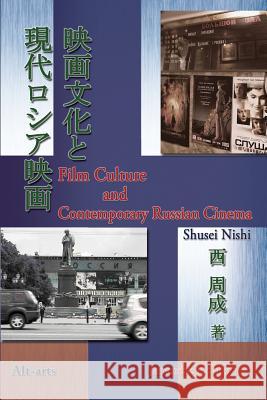Eiga Bunka to Gendai Rosia Eiga » książka
Eiga Bunka to Gendai Rosia Eiga
ISBN-13: 9781481842327 / Japoński / Miękka / 2012 / 266 str.
The conceptual model of a film culture presented in this book, was born in the process of the author's studying the modern Russian cinema since perestroika from the need to describe the process of its decline and rebirth during the same period. (......) It can explain to a large extent also the formation and development of cinema as a cultural institution including the audience, the film policy, the film education and the various discourses about cinema. In other words, by using this conceptual model, the phenomenon of cinema as a whole that cannot be comprehended by the existing methodologies can be reconsidered from a new perspective. (P.7) The components of the film culture respectively consist of the official and the unofficial parts. The film culture is a semantic field where the interaction of the various elements (or fields )within which the a process of the constant mutual penetration and the casual abrupt exchanges between the official and the unofficial parts is in progress. (P.22) This book consists of the retouched several papers which have been written on the basis of the above awareness. Some of these papers have been published previously. The first chapter, (published in "Slavic Cultural Studies") is based on the content that has been presented at the international workshop "The cultural Imagination of the post-Stalin era" held at the Tokyo University of Foreign Languages in early 2010. The second chapter and the third chapter were written during the year 2008-09 as the result of individual research grants by the Japan Society for the Promotion of Science ( "Study of Contemporary Russian Culture since perestroika," research project number 19510261). For the fourth chapter (previously unpublished) the author used the results of his part of the joint research by the same subsidy ("Study of a Contemporary Film Producing by Oral History," the research project number 19320100). The introduction was written for this book.
Zawartość książki może nie spełniać oczekiwań – reklamacje nie obejmują treści, która mogła nie być redakcyjnie ani merytorycznie opracowana.











